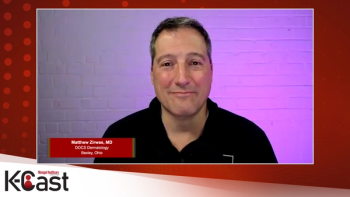
Is There an Ideal Patient for Comprehensive Genomic Profiling?
David Gandara, MD, explains how the scope of comprehensive genomic profiling has shifted from a select few patients to the majority.
Episodes in this series

Transcript:
David R. Gandara, MD: Our thinking about who should get next-generation sequencing done by a comprehensive genomic profiling platform has changed over the years. I’m referring to non–small cell lung cancer because this is the clearest example. Initially, we said, “Maybe this should be only in never-smokers, in adenocarcinoma, or this should just be in young patients in the United States who are Asian American because of a higher prevalence of EGFR-mutated disease. Our thinking has changed because if you find that abnormality, it’s like hitting a grand slam home run, using baseball terminology. Even if that patient has a prior smoking history, there’s still a significant chance you’ll find 1 of the oncogenes. It’s going to be much less—for example, for EGFR—but if you use next-generation sequencing, you test for all the abnormalities all at once.
A patient I recently saw who was Japanese American had a light smoking history. I suspected that he would have an EGFR mutation and instead he had an ALK translocation. I wasn’t looking for ALK—I was expecting EGFR—but this was tremendously important for this patient. Now it would be everyone with advanced-stage non–small cell lung cancer. In guidelines a case is being made for those with squamous cell lung cancer as well, particularly younger patients and those with a lighter smoking history. The reason is that although they’re less common, you can still find these abnormalities in squamous cell lung cancer. It’s like night and day in terms of the options for them.
One study where I wrote the editorial—the LUX-Lung 8—21% of patients with pure squamous cell lung cancer had a HER [human epidermal growth factor receptor] family mutation. EGFR is HER1, but there’s also HER1, HER2, HER3, HER4. The benefit in this trial for a pan-HER inhibitor like afatinib was markedly better in patients who had 1 of these abnormalities with very long survival in some of them. Today it’s everyone.
Transcript edited for clarity.
Newsletter
Get the latest industry news, event updates, and more from Managed healthcare Executive.




















